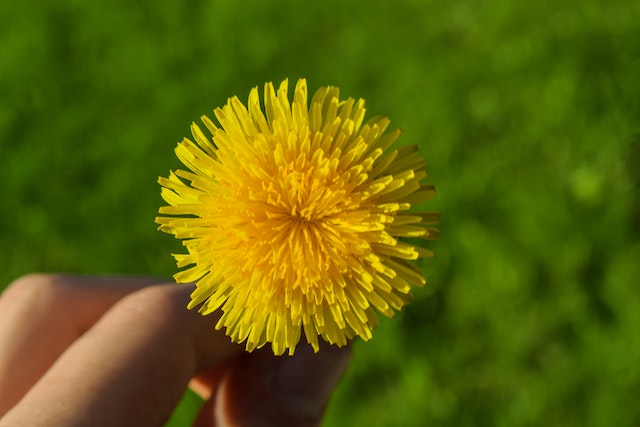Discover the multifaceted benefits of dandelion for your health!
Dandelion (Taraxacum officinale), often considered an undesirable weed in gardens and lawns, harbors numerous health benefits and has been valued for centuries in traditional medicine for its medicinal properties. Here are several ways dandelion can contribute to your well-being:
- Nutrient bomb: Dandelion leaves are rich in nutrients, including vitamin A, vitamin C, vitamin K, calcium, iron, magnesium and potassium. They are a valuable addition to your diet.
- Digestive support: Dandelion is often used as a natural remedy for digestive problems. It can stimulate appetite, promote stomach acid and bile production, and provide relief from stomach cramps and indigestion.
- Liver Health: Traditionally, dandelion is used to support and detoxify liver function. It helps remove toxins from the body and may be helpful in liver disease.
- Anti-inflammatory: Dandelion has anti-inflammatory properties and can help reduce inflammation in the body, which can be beneficial for conditions such as arthritis.
- Diuretic effect: The use of dandelion can lead to increased urine production, which can help remove excess fluid from the body. This can be useful for regulating blood pressure and reducing fluid accumulation.
- Antioxidants: Dandelion contains antioxidants, such as flavonoids, which can neutralize free radicals in the body and reduce cell damage.
- Weight management: Dandelion may contribute to weight loss by supporting digestion and removing excess fluid from the body.
- Skin care: Dandelion extracts are sometimes used in skin care products because of their potential benefits to the skin, such as reducing acne and skin irritation.
- Immune support: The nutrients in dandelion, especially vitamin C, can contribute to a healthy immune system and increase resistance to disease.
It is important to note that dandelion, although it offers many health benefits, can cause allergic reactions in some people, especially those who are allergic to plants in the Asteraceae family, such as daisies, marigolds and ambrosia.
